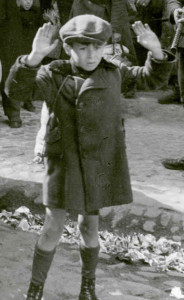 His name was Aylan Kurdi. He was three years old.
His name was Aylan Kurdi. He was three years old.
He died when the boat carrying his family from Turkey to Greece capsized, filled with refugees fleeing war-torn Syria. Aylan’s mother and five-year-old brother died, too.
His lifeless body, dressed in a red T-shirt and shorts, washed up on the Turkish shore, buffeted by waves. A Turkish officer plucked him from the surf, and cradled him in his arms, small legs dangling, his tiny sneakers laced on feet that will never run again.
The image of one dead child has focused world attention on the plight of those fleeing the civil war in their home country, now in its fourth year, in a way that nothing else has. Viewed millions of times on social media, the photo has made real what news reports could not. Aylan’s death has both horrified and shamed us; made us aware of how easy it is to turn away when the problem is not yours. How easy it is to turn from the roiling humanitarian crisis that is growing on Europe’s borders.
These images were followed in short order by those of Syrian refugees stuffed into trains, toilets overflowing, trapped there by Hungarian authorities who do not want to let them off; who do not want them to enter the country and officially become their problem. Or to see Czech authorities writing numbers in indelible marker on Syrians’ arms, until someone reminded them what that must look like to the rest of the world. Or refugees being told they are heading to the German border, only to be sent to…detention camps.
According to the International Organization for Migration, more than 5,000 people a day have crossed the Mediterranean this week. Ferried on inadequate boats teeming these desperate people, are abandoning homes in Syria, Libya., Eritrea. All are hoping to face safe harbor in Europe. Nearly 365,000 have found their way — by foot or by boat — out of the Middle East and Northern Africa; of that, almost 3,000 of them have died at sea.
Of the Syrians, 11 million have been uprooted during the violent civil war that erupted in 2011. Many have fled twice: first from their own government, and then from Islamic State insurgents seizing their moment in all this unrest.
These are not migrants, as the media blithely calls them. The word migrant makes me think of seasonal farmworkers: people whose lives might be hard and itinerant, but not those desperately fleeing barrel bombs and maniacs set on beheading you.
That status has a word all its own: refugee.
 In the U.S. and in Europe we are reluctant to call them refugees, I suspect, because then we would have to assist them in more meaningful ways than we have. Of the four million Syrian refugees, the United States has taken in fewer than 1,000. After the fall of Saigon in 1975, we took in 125,000
In the U.S. and in Europe we are reluctant to call them refugees, I suspect, because then we would have to assist them in more meaningful ways than we have. Of the four million Syrian refugees, the United States has taken in fewer than 1,000. After the fall of Saigon in 1975, we took in 125,000
As the numbers that define this crisis get larger, it is easier to turn this into a greater abstraction. The larger the numbers, the harder to understand. Think instead of a small Jewish boy holding his arms up at Nazi gunpoint. That image tears at our heart.
Anne Frank’s diary is powerful because it is specific. We understand exactly what was lost — not only a life, but what hope was exterminated along with it. Something we cannot fathom when we say that six million Jews were murdered in the Shoah.
A little dead boy on a beach, drowing in terrifying, foreign waters makes real what the words “11 million uprooted” cannot.
When I see immigrants being turned away by countries such as Hungary and the Czech Republic, places that so willingly turned on Jews in World War II, I’m not surprised. That Germany has become a welcoming safe harbor for these unfortunate souls is ironic, and perhaps, is even hopeful, showing us that things can change.
It all seems familiar, a grotesque rehash of the story of the S.S. St. Louis, a German ocean liner carrying a cargo of 937 Jews. Setting sail for Cuba in May 1939, only 30 of its passengers were allowed to disembark upon arrival. The rest, also denied entry to the United States after days of appeals, were sent back to Germany.
No one really wants the Syrian refugees. They are from a Muslim country we associate with anti-Western hate and terror. Even if it is violence that they are fleeing themselves, we have a hard time opening our hearts to their pleas.
But as Jews, we are instructed we must do so. Repeatedly in the Torah we are reminded that we were once “strangers in the land of Egypt,” and that we must not wrong the strangers in our midst.
The Syrians’ plight is the largest refugee upheaval since the end of World War II, when it was our people who were strangers in indifferent lands. The events of this past week reminds us that the distance between a Jewish boy holding his hands up at gunpoint and a dead Syrian toddler may not be so great.
